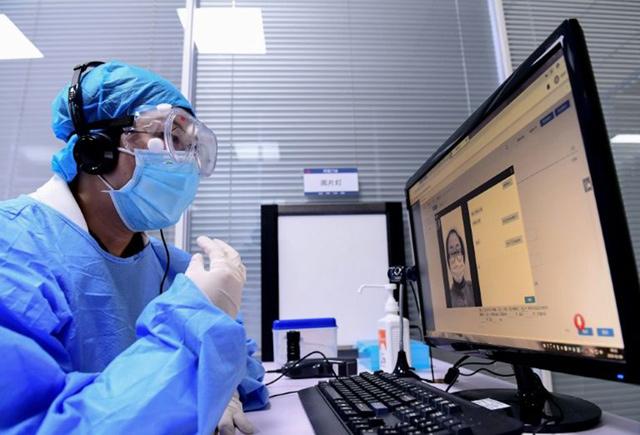You are here
Healthcare workers discuss live-saving potential of national telemedicine system
By Rayya Al Muheisen - Mar 28,2023 - Last updated at Mar 28,2023

Representative image (Image courtesy of pixabay)
AMMAN — The introduction of a national telemedicine system could connect thousands of patients living in rural areas with healthcare services and protect frontline healthcare workers, helping them focus on acute cases, say experts.
Ali is 33 years old and lives in Irbid. He was born with a rare disease and uses a wheelchair.
“Transportation for disabled individuals in Jordan is a struggle,” Ali told The Jordan Times.
Ali has routine medical check-ups in Amman, approximately 80km south of his home. Every three months, he has to rent a private car and ask friends to take off work to drive him to the doctor's clinic.
“Aside from the fact that people with disabilities in Jordan need transportation and infrastructure, online doctor's appointments would be a huge relief to myself and people around me," said Ali.
Isam Hasanat is the father of a seven-year-old boy diagnosed with hemophilia. Hasanat lives in Wadi-Musa and makes the three-hour journey to Amman once a month for his son's checkups.
"An online platform where the doctor can assess my son virtually and decide whether he needs to see my son in person would make my life much easier," Hasanat told The Jordan Times.
The prime ministry held a meeting on Sunday, during which Prime Minister Bisher Khasawneh approved the validating reasons for a telemedicine system draft law for the year 2023, as reported by Al Mamlaka TV.
Al Mamlaka added that the draft aligns with the Economic Modernisation Vision, which is aims to improve Jordanian’s quality of life and well-being, as well as engender digital transformation.
Telemedicine refers to an online system that helps monitor patients outside medical facilities. This form of care is made possible by mobile devices, online platforms and phone services, according to online sources.
"In order to successfully transition from the usual in-person visits to virtual doctor's appointments, we need proper infrastructure, highly trained medical staff and flexible, willing clientele," Abdel Rahman Shaher, former director at the Ministry of Health told The Jordan Times.
According to a survey conducted by the Ministry of Digital Economy and Entrepreneurship, the vast majority of Jordanians have access to the Internet and smart devices.
Telecommunication services are widely available in Jordan, as over 92 per cent of the Jordanian population has internet access, the survey detailed.
The state of Jordanian telecommunication presents an opportunity to design and implement a successful telemedicine programme in the country, Shaher said.
“In Jordan, there are several barriers to designing and implementing a national telemedicine programme. However, it is possible to do so if crucial stakeholders agree on the intervention’s importance and timeliness,” Shaher added.
Gynaecologist Aseel Jazazi said that the introduction of a national telemedicine programme could enable hundreds of thousands, if not millions, of people to receive routine medical care without the need for in-person trips to hospitals.
“Telemedicine would help relieve the healthcare sector, allowing for frontline workers to use personal protective equipment properly when caring for patients who need in-person care or hospital admission,” Jazazi added.
Implementing a telemedicine system will give healthcare employees time to focus on patients in need of immediate, acute medical attention, ultimately saving the lives of patients, according to Jazazi.
“Training healthcare providers on telemedicine platforms and educating the public on the concept will contribute to the transition from in-person to virtual appointments,” Shaher added.
Related Articles
SAN DIEGO — Is healthcare going the way of Uber?Though it may sound far-fetched, seeing a doctor could move in that direction if telem
AMMAN — Doctors are calling for the creation of “clear and specific” protocols for asthma patients in emergency rooms and medical care centr
PARIS — Will visiting the doctor ever be the same again? In a matter of weeks, the coronavirus pandemic sparked a technological revolut



















